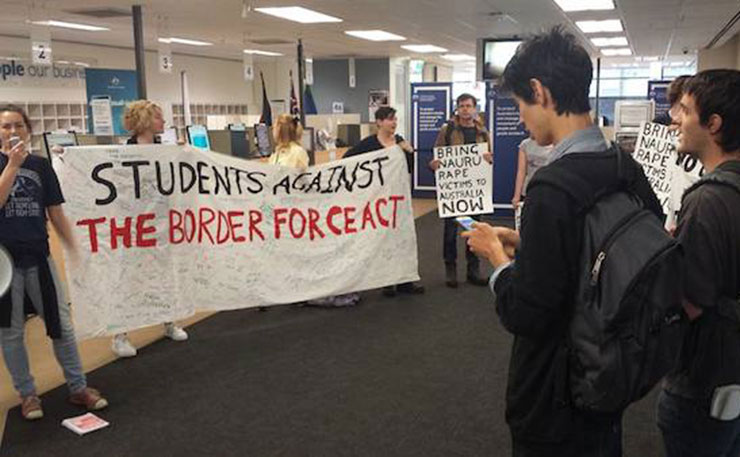Oct 21 – Outback father-and-son bandits the Stoccos were able to flee interstate and cause havoc despite bashing a police sergeant in Queensland three months ago, some of their frustrated victims have told Fairfax Media.
Gino and Mark Stocco were reported to have last been seen in a stolen white Toyota landcruiser utility heading north on the Hume Highway on Monday, after getting fuel at an Euroa service station in north-east Victoria. The 58-year-old father and his 38-year-old son have spent eight years on the run from police.
 Fugitives Mark Stocco, 35, and Gino Stocco, 57.
Fugitives Mark Stocco, 35, and Gino Stocco, 57.
A spokeswoman provided details of a recent assault on police involving the Stoccos. She said the assault had allegedly occurred after a man was reported to have stolen something at a grocery store in Scott Street, St George, at about 12pm on June 14.
The man threw a bottle at a police officer who called on him to stop.

Police believe Mark and Gino Stocco have stolen this Toyota Landcruiser Photo: NSW Police
“The officer apprehended the man and a struggle ensued. Another man arrived in a vehicle and has begun assaulting the officer,” she said. “The two men then fled the scene. Warrants were issued for the arrest of both.”
The spokeswoman said the offenders were placed on a Crime Stoppers most wanted list and media releases were issued.
Mr Redding said he was told that the policeman was set upon by the younger Stocco, Mark, who was then assisted by his father Gino in the assault on the officer.
The assault is just the latest in a lengthy list of crimes undertaken by the pair as they roamed for eight years across a remote rural zone stretching from north Queensland to Victoria.
It was only on Friday that the Stoccos became the target of a major police operation code named Strike Force Kalkadoon after they were alleged to have fired two shots at police near Wagga Wagga.
Continue reading “Queensland: Father and son bandits escaped after bashing police officer”



